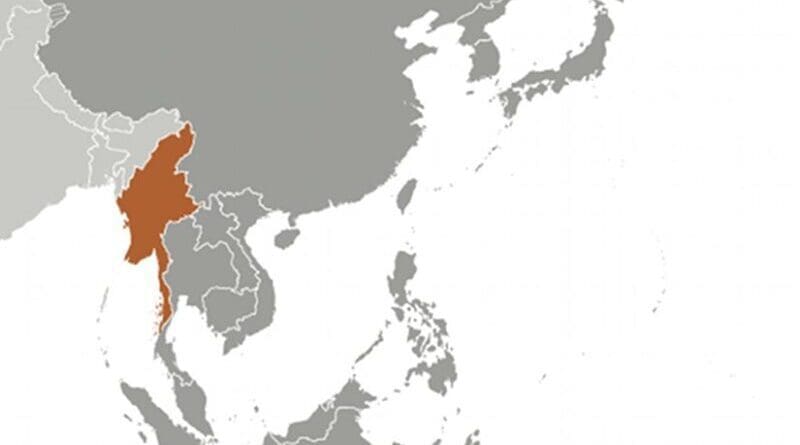Burma’s Shan Rebels Signed Truce Hoping Permanent Peace – OpEd
By Zin Linn
The Restoration Council of Shan State / Shan State Army (RCSS/SSA), commonly known as the SSA South, is holding a two-day ad hoc meeting of its 47 member Central Leading Committee (CLC) which begins Wednesday, quoting SSA sources Shan Herald Agency for News (S.H.A.N.) said.
According to S.H.A.N., the meeting supposes to analyze the report of the negotiation team that has returned to Loi Taileng, the main base of the organization, following its signing of the initial ceasefire agreement on 2 December in the Shan State capital, Taunggyi.
It will also thrash out potential negotiations at the Union level and an evaluation of its future plans. “A press release will be issued on 9 December,” said RCSS chairman Yawdserk. “A press conference is also being planned.”
The truce, signed on 2 December in the Shan State capital Taunggyi, was the most up-to-date landmark that the new so-called Burma’s civilian government is reaching out to one of its armed opponents in the war-torn country which has made a series of pro-reform moves in the recent past.
The end of hostilities between the two sides will be agreed in line with the latest 8-point agreement, as said by S.H.A.N’s report. In keeping with the current pact, the two sides also agreed to exchange ceasefire directives to their respective armed forces.
The RCSS/SSA’s 4 point proposal on 19 November is agreed in principle. The two sides agreed to uphold at positions consented by both sides. The two sides agreed to coordinate with each other in advance, before moving with arms beyond designated positions.
Designation of areas will be discussed further at the Union level talks. Liaison offices will be established at Taunggyi, Kengtung, Kholam, Tachilek and Mongton with personnel and arms due to agreement by both sides.
The pact says that the Union level talks will discuss designation of new liaison offices. The two sides also agreed to work together in preventing the dangers of narcotics. The RCSS/SSA will form an official delegation so as to hold talks with the Union negotiation team formed by the Union Government and to set a date, time and venue for it. The two sides agree to continue to hold talks on remaining subjects.
The initial agreement was signed in the presence of Union Ministers Aung Min and Khin Maung Soe. Also at the signing ceremony were Col Aung Thu (Minister Ministry of Security and Border Affairs, Shan State Government), U Maung Maung (State Chief of Justice, Shan State Government) and Lt-Col Zaw Tun Myint (Staff Officer Grade-1, Triangle Region Command) and they exchanged gifts each other. Next, State Minister Col Aung Thu and Brig-Gen Sai Lu, of RCSS/SSA Peace group exchanged the documents and had a documentary photo taken together with the Union Ministers.
Fighting between the two sides ceased since Tuesday afternoon, 4-days after the signing. “The Burmese side had issued an order to its units to observe the ceasefire on 3 December,” RCSS chairman Yawdserk explained. “But we received a copy of it only yesterday. We have accordingly issued our own directive to our units to adhere to the 2 December agreement.”
According to the 8-point agreement signed in Taunggyi, Mongton, 53 miles (85 km) north of Chiangmai border, is one of the five towns where the SSA will be setting up its liaison offices. Shan State Army’s 727th Brigade, commanded by Lt-Col Teun Kherh, is active in the area, Shan Herald Agency for News said.
RCSS chairman Yawdserk said that even though the temporary ceasefire agreement signed, genuine peace will come to the Shan State and its people only after the political differences have been peacefully resolved between the two sides.
Naypyitaw’s special envoy, during the meeting on the Thai-Burmese border on 19 November, had declared a three stage roadmap towards permanent peace: Ceasefire, Development and “Panglong like” conference. But it has yet to be publicly announced.
Civil war against ethnic rebels has ruined parts of the country especially in ethnic rural areas since its independence in 1948. Ending of the conflicts with ethnic groups as well as gross human rights abuses involving government soldiers in ethnic areas, is a significant claim for the international community.
Hillary Clinton, the first US secretary of state paid a latest three-day visit – 30 Nov. to 2 December – to Burma in more than 50 years, said she saw opportunities during her trip that provided some grounds for encouragement. She called for the release of political prisoners and an end to the brutal ethnic violence that has devastated the nation for decades.
“The government must end human rights abuses, hostilities against ethnic rebels, release all political prisoners and ensure that no more are arrested in the future for their beliefs,” Clinton spotlighted.

